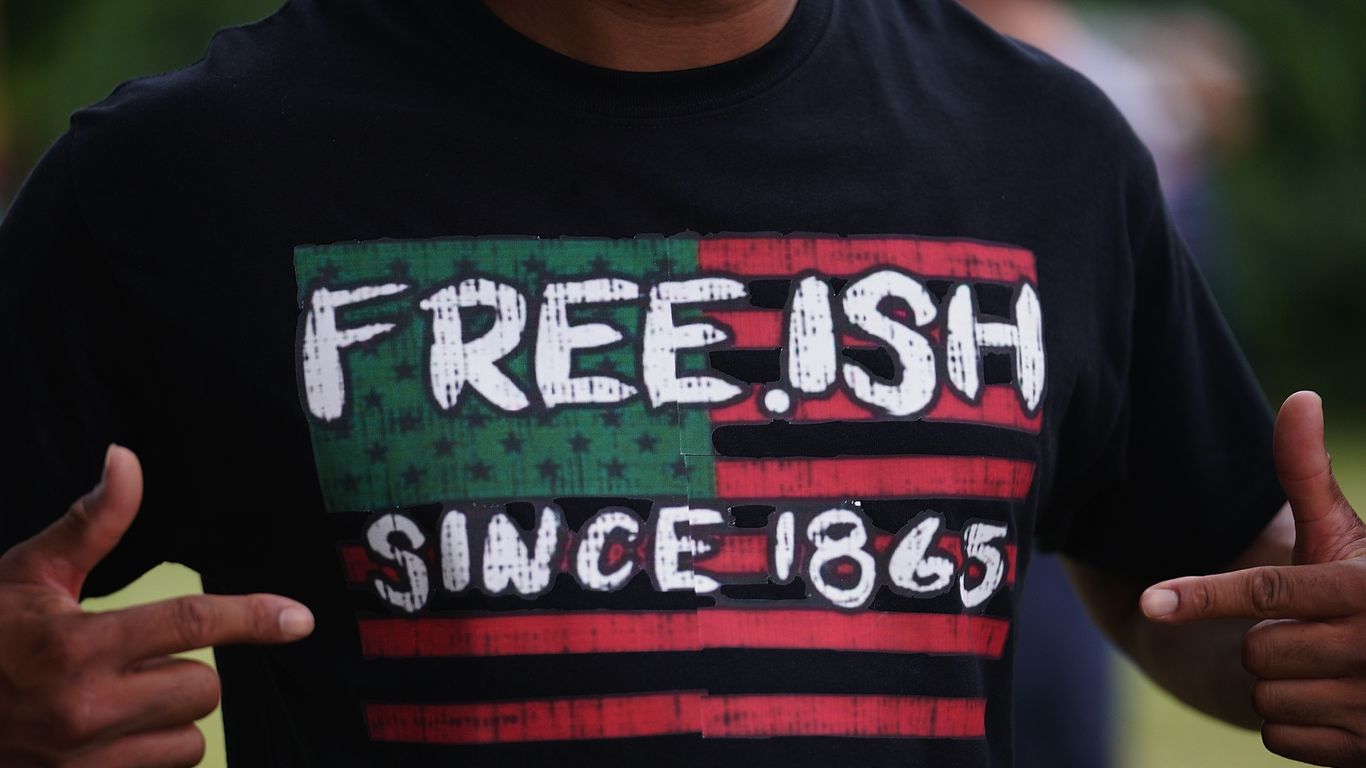
A proposal in the Congress would designate June 19 as a national holiday to commemorate the emancipation of enslaved people in the United States. But a key Black congressman says another day might be better.
Why it matters: The nation is struggling with how to commemorate and discuss emancipation amid a racial awaking, and the disagreement about even the date that it should be marked shows the effort still faces some major obstacles.
The details: A group of House and Senate Democrats recently introduced a bill to declare June 19 as a paid federal holiday to honor the end of slavery in the U.S.
- For years, Juneteenth has been celebrated in Houston and Galveston, Texas, to commemorate U.S. Major General Gordon Granger issuing General Order No. 3 during the Civil War.
- That order announced that, in accordance with the Emancipation Proclamation, that “all slaves are free.” It was one of the last places in the U.S. where enslaved people learned of emancipation.
- Juneteenth recently has become a day marked in other cities and became a rallying point last year following the death of George Floyd.
The intrigue: Companies and trade groups, like Spotify and the American Hotel & Lodging Association, are endorsing the idea of making Juneteenth a national holiday.
- "Creating a new national holiday for Juneteenth brings even greater meaning to the unifying power of travel—with the holiday having the potential to help the nation heal and create a more perfect union,” said Tori Barnes, the U.S. Travel Association's executive vice president of public affairs and policy.
- Some companies, like Altria, Nike, and J.C. Penney, have allowed employees to take the day off.
Yes, but: House Majority Whip Jim Clyburn (D-S.C.) said not everyone sees Juneteenth as the moment of emancipation, and other days should be considered.
- "Yeah, I don't accept the notion that Juneteenth is the day that Blacks were freed from slavery. Now Juneteenth was the day that Black folks in Texas got freed from slavery. So it was a Texas holiday."
- Clyburn said Jan. 1, 1863, is significant to him. That's the day U.S. Gen. Rufus Saxton gathered a diverse crowd at a site of a former plantation in South Carolina for one of the earliest readings of the Emancipation Proclamation.
- "About 4,000 people there did not continue in slavery."
What to watch: Supporters of an emancipation remembrance holiday will have to agree on a day and then write a bill that will face resistance in a divided Senate.
The Link LonkMarch 21, 2021 at 07:00PM
https://ift.tt/38Xbm2b
National holiday eyed to commemorate emancipation - Axios
https://ift.tt/2QoXNjh
Holiday

No comments:
Post a Comment